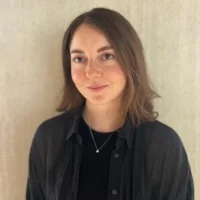Global Diasporic Healthscapes in the Post-Covid World

Global Diasporic Healthscapes in the Post-Covid World: Learning from UK Ugandan Diaspora
The UK government’s Covid-19 response, and the vaccination campaign in particular, generated widespread mistrust among many UK diaspora communities. Whilst there was intense policy focus on community engagement and working with grassroots organisations, mutual aid which functioned during the emergency has done little to address structural inequalities in healthcare. Indeed, the work of the research team explored how rhetoric of ‘trust-building’, which ascended during the pandemic has ultimately served to silence experiences of racism and exclusion which function through encounters in UK health system. There have been few attempts to listen to communities’ experience of seeking care.
This project explored legacies of mistrust in the post-Covid world. It features a schedule of participatory and interview-based activities centred around Ugandan diaspora living in Newham in East London. It builds on the teams’ extensive experience of doing ethnography between Uganda and UK, as well as the transnational work of the Uganda Diaspora Foundation, and asks of the long-term legacies of Covid-19. In particular, the research traced how communal health activism which emerged during the pandemic evolved to address new priorities, including building awareness around blood donation, mental health and pain management. It is invested in understanding how the failure of the state to address racial inequalities links to logics of everyday solidarities and activism. It is also invested in the transference of knowledge, expertise and support between Uganda and the UK, and asks of the connections between global diaspora connections and care.
The research builds on the findings of the Periscope Commission and the RISF Trust in Crisis Project (LSE).
Researchers

Dr Liz Storer researches health and well-being in East Africa. Her PhD research explored social healing in the West Nile sub-region of Uganda. She is currently working on projects exploring epidemic preparedness and protection in Uganda/ South Sudan.

Charlotte Hawkins
Charlotte is a Postdoctoral Research Officer in the Department of Anthropology at LSE, where she is involved in the Periscope project and the LSE Commission for Pandemic Governance and Inequality. Her work as a medical anthropologist focuses on the social economies of mental health and wellbeing.

Innocent Anguyo is a consultant and researcher with interest in politics, livelihoods, and migration, especially in contexts of fragility, conflict, and violence. He has worked on projects for the LSE, the Government of Uganda, Samuel Hall International and several UN agencies.

Moses Mulimira
Moses is a Project manager at the NHS Global Health Fellowship. He is a research consultant on Diaspora Communities at the LSE. He is also the UK Lead of Uganda UK Health Alliance. Moses completed his postgraduate studies at the University of Oxford and an MSc in Clinical & Public Health Aspects of Addiction at King’s College London.